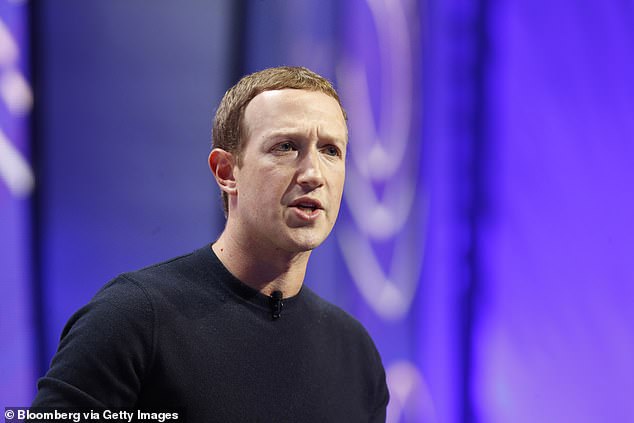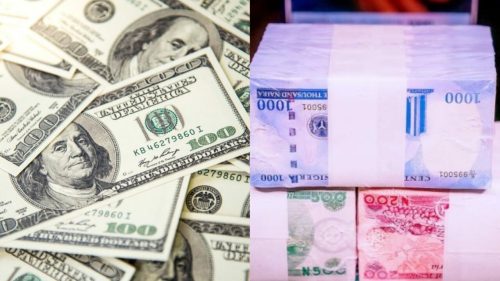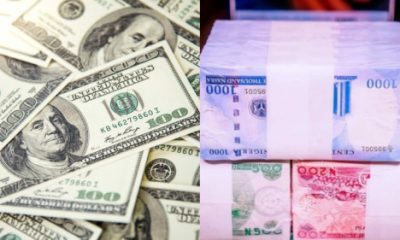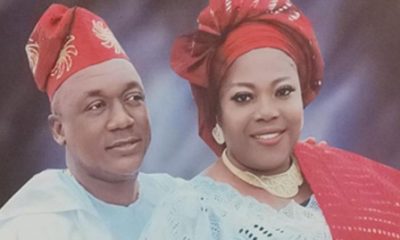100150Price35,700,000NovOctSep1804210723092612
Business
S&P 500: 10 Meta Investors Lose $211 Billion On Mark Zuckerberg’s Madness

Who could slow down Mark Zuckerberg’s costly plan to pivot Meta Platforms (META) into the metaverse? It’s going to have to be one of the investors holding the biggest losses.
And these investors have the most to lose from the company’s decision a year ago to shift from lucrative social media to nauseating virtual reality. They’ve watched as more than $211 billion in market value in their own current positions vanished this year. They’ve lost even more than Zuckerberg, who’s down $85 billion.
“Meta, which was already struggling to adapt to changes to Apple’s mobile ad-tracking policies, saw its advertising revenue fall about 4% year over year in the September quarter,” says a report from S&P Global Market Intelligence. “Meta is in the process of pivoting its core focus from social media toward the future metaverse, which is also not sitting well with investors.”
Meta Platforms (META)
Meta investors are paying a big price for the company’s decision to shift its business roughly a year ago.
Just this year, shares of Meta are down more than 73% to 89.48. That’s shaved more than $650 billion off the company’s market value. Meta’s loss in market value is more than what 99% of the companies in the S&P 500 are individually worth. It also makes Meta the worst-performing stock in the S&P 500 this year.
And if you own mutual funds and ETFs, you’re holding a big part of the bag of losses, too. Meta, alone, is a 17% position in the Communication Services Select Sector SPDR (XLC), 12% holding in Vanguard Communication Services ETF (VOX) and 10% spot in iShares Global Communication Services ETF (IXP).
But will these ETF giants speak up?
Who’s Holding The Meta Bag?
Meta is somewhat unusual among S&P 500 companies in that the founder, Zuckerberg, is still a top shareholder with 347.8 million shares. But ETF giants as a group own even more than he does.
Vanguard is the stock’s No. 2 holder with 180.4 million shares. That accounts for more than 6.8% of the company. And due to that huge position size, Vanguard is down more than $44 billion on the stock this year.
Another ETF behemoth, BlackRock, is the No. 3 largest holder of Meta stock with 152 million shares valued at 5.7% of the company. BlackRock is down more than $37 billion this year on the stock. Rounding out the top 5 holders are other players in ETFs and mutual funds like American Funds’ parent Capital Research with a 4.5% position and Fidelity FMR at 4.2%.
Several co-founders, too, remain the top 10 like Eduardo Saverin with his 2% position and Dustin Moskovitz with just under 1%. But it’s going to be up to the big fund companies needed to speak up. Activist investors, so far, only own a tiny part of the company. New York State Common Retirement Fund only owns 0.18% and D.E. Shaw 0.13%
The question now is whether any activists will be lured in by Meta’s suddenly lower price?
Biggest Meta Losers
Top holders of Meta Platforms stock and their paper losses this year so far
| Holder | Value lost this year ($ billions) | % owned on shares outstanding |
|---|---|---|
| Mark Elliot Zuckerberg (Founder, Chairman & CEO) | $85.9 | 13.1% |
| Vanguard Group | 44.5 | 6.8 |
| BlackRock | 37.4 | 5.7 |
| Capital Research and Management | 29.8 | 4.6 |
| FMR | 27.7 | 4.2 |
| State Street Global Advisors | 22.2 | 3.4 |
| Eduardo Saverin (Co-Founder) | 13.2 | 2.0 |
| T. Rowe Price Group | 12.7 | 1.9 |
| Geode Capital Management | 10.5 | 1.6 |
| Norges Bank Investment Management | 6.9 | 1.1 |
| Dustin Moskovitz (Co-Founder) | 6.4 | 1.0 |
Sources: S&P Global Market Intelligence, IBD
Business
Fidelity Bank Renovates Nasarawa PHC Clinic, Donates Water Facility

As part of its Corporate Social Responsibility (CSR) initiatives, leading financial institution, Fidelity Bank Plc, has renovated the Primary Healthcare Clinic along the Workers Village in the Tudun Amba Community of Lafia Local Government Area of Nasarawa State.
The bank also provided water facilities to ameliorate issues of water scarcity being experienced in the community in recent times.
Speaking at the inauguration ceremony, the Divisional Head, Brand and Communication Plc, Fidelity Bank, Meksley Nwagboh, said the dignity of every human person is a shared responsibility. The bank decided to embark on the project as a means of improving the living condition of people in the community and as part of the bank’s social responsibility to its host community.
Expressing gratitude to the leadership of the community for giving the bank the opportunity to execute the project, Nwagboh said, “What we are doing today is not different from what we have been doing in communities, local governments and states across the country over the years. As a socially responsible organisation, we take it upon ourselves to impact our host communities positively through developmental initiatives such as these.
“On behalf of the management and staff of Fidelity Bank, I want to say thank you to everyone who made it possible for us to touch the lives of the people positively in this community and we remain committed to playing our part in helping individuals grow, thrive and prosper”.
On his part, the Honourable Commissioner of Health, Nasarawa State, Gaza Gwamna, while commending Fidelity Bank for the donation of a water facility and the renovation works at the Primary Healthcare Clinic, reiterated the state government’s commitment to continue to support commercial banks to boost the economy of the state.
The Commissioner who was represented by the Permanent Secretary of the ministry, John Damina, further called on the Nasarawa State Primary Healthcare Development Agency to utilise the upgraded facility with care to encourage the bank and other private investors to continue to support the less-privileged people of the state.
“I want to use this opportunity to call on the management of the NAPHDA to ensure proper utilization of this facility for the good of the host community and beyond. This will go a long way in encouraging other private sector players to extend the same gesture to other communities in the state,” he said.
Ranked as one of the best banks in Nigeria, Fidelity Bank is a full-fledged customer commercial bank with over 8.5 million customers serviced across its 251 business offices in Nigeria and the United Kingdom as well as on digital banking channels.
The bank has won multiple local and international awards including the Export Finance Bank of the Year at the 2023 BusinessDay Banks and Other Financial Institutions (BAFI) Awards, the Best Payment Solution Provider Nigeria 2023 and Best SME Bank Nigeria 2022 by the Global Banking and Finance Awards; Best Bank for SMEs in Nigeria by the Euromoney Awards for Excellence 2023; and Best Domestic Private Bank in Nigeria by the Euromoney Global Private Banking Awards 2023.
Business
Black Market Dollar To Naira Exchange Rate Wednesday, 15th May 2024

Black market dollar to naira exchange rate Wednesday 14th May 2024 can be accessed below.
IMPORTANT NOTE: The exchange rate changes hourly.… it depends on the volume of dollars available and the Demands. It means that…you can buy or sell 1 dollar at a certain rate and the price can change (high or low) within hours.
JomogNews Nigeria has obtained the official naira black market exchange rate in Nigeria today including the Black Market rates, Bureau De Change (BDC), and CBN rates. Please note that the exchange rate is subject to hourly fluctuations influenced by the supply and demand of dollars in the market. As of now, you can purchase 1 dollar at a certain rate now, however, it’s important to keep in mind that the rate can shift (either upwards or downwards) within hours.
What is the dollar to naira exchange rate today?
The local currency (abokiFx) opened at ₦1,530 per $1 at the parallel market otherwise known as the black market, today, Wednesday, 15th May 2024, in Lagos Nigeria, after it closed at ₦1,530.00 per $1 on Tuesday, 14th May 2024.
Dollar to Naira (USD to NGN) Black Market Exchange Rate Today
Buying Rate of $1 ₦1530
Selling Rate of $1 ₦1,550
How does the black market dollar-to-naira exchange rate compare to the official rate?
The official exchange rate of the US dollar to the Nigerian naira, as of today, 15th May 2024, is N1450.40 per US dollar.
This is the rate that the CBN uses for its transactions and interventions in the foreign exchange market. The official rate is also the basis for the exchange rates of other foreign currencies, such as the euro, the pound sterling, and the Chinese yuan.
The difference between the black market rate and the official rate is called the parallel market premium. The parallel market premium indicates the degree of divergence between the official and unofficial markets and reflects the level of confidence in the naira and the CBN’s policies.
Factors Influencing Foreign Exchange Rates
Here are some of the causes of the dwindling dollar-to-naira exchange rate.
Inflation Rates: It is well known that inflation directly impacts black market exchange rates. If the Nigerian economy can be stabilized and inflation is controlled, the naira will benefit; however, if the naira continues to fall, it may indicate that food and other necessities are becoming more expensive daily.
Interest Rates: Another tool to keep an eye on is interest rates. If the interest rate at which banks lend money rises, it would harm the economy, causing it to contract and, as a result, the value of the naira to fall.
Government Debt: National debt can impact investor confidence and, as a result, the influx of funds into the economy. If inflows are high, the naira exchange rate will rise in favour of the naira.
Speculators: Speculators frequently impact the naira-to-dollar exchange rate. They stockpile money in anticipation of a gain, causing the naira to plummet even lower.
Conditions of Trade: Favorable trade terms will increase the value of the naira to the dollar, although Nigeria is currently experiencing a trade deficit. Everything comes from China, India, and the majority of Asian countries.
Disclaimer: JOMOGNEWS NIGERIA does not set or determine forex rates. The official NAFEX rates are obtained from the website of the FMDQOTC. Parallel market rates (black market rates) are obtained from various sources including online media outlets. The rates you buy or sell forex may be different from what is captured in this article.
Business
Analysts Place “Buy” On Fidelity Bank

Highly-rated, independent investment advisory firms have picked Fidelity Bank as a very attractive stock with potential to generate high returns for investors.
Independent investment research reports by many market pundits reviewed at the weekend showed that Fidelity Bank was assigned “buy” ticker, a recommendation to investors to consider the potential attractive returns of the bank.
The research reports were based on the historical and current operational performances of the bank as well as the clear-sighted implementation of the bank’s growth plan. The reports also considered the quality of board and management and the general human capital and resources of the bank.
The investment advisory reports included those of Afrinvest Group, FSDH Capital and CardinalStone among others.
Analysts were unanimous that Fidelity Bank’s share price could double in the period ahead given professional assessment of top traditional performance parameters including the company’s operational reports, investors’ preference and projections.
CardinalStone stated that Fidelity Bank’s share price could double citing the bank’s “robust earnings growth” and the increasing profitability of its core banking operations.
After an extensive review of the global and domestic stock markets, FSDH Capital selected Fidelity Bank as one of the “FSDH Top Picks”, a group of stocks that the investment advisory firm considered to be most attractive for discerning investors. FSDH Capital’s stock selection considered a stock’s pricing history, dividend history, fundamental values and peer ratios among others.
Providing background on analysts’ exhaustive research for stock selection, Afrinvest explained that the company’s fair value estimate “takes into account a weighted average of price estimates derived from a blend of valuation methodologies including the Discounted Cash Flow (DCF) and its variants as well as other relative and comparable trading multiples valuation models”.
“However, we attach the most weight to DCF valuation methodology, particularly the Dividend Discount Model (DDM), Free Cash Flow (FCF) model and Residual Income Valuation/Model (RIV/RIM). The utilization of comparable trading multiples is guided by the analysts’ understanding of the banks’ fundamentals, as well as key price drivers from the firm, industry and macroeconomic perspectives,” Afrinvest stated.
The “buy” rating, according to analysts, implies that “the expected total return over the next 12 months is 25 per cent or more. Investors are advised to take positions at the prevailing market price as at the report date”.
Afrinvest projected that Fidelity Bank, with a dividend yield of 9.3 per cent, has price upside potential of more than 35 per cent. This effectively makes the stock an inflation-hedging stock, implying that investors in the bank’s shares can retain money value despite the current inflationary environment.
Futureview Group said Fidelity Bank’s recent operational reports highlighted the bank’s “excellent operational performance and the breadth of its income sources”.
The audited report and accounts of Fidelity Bank for the year ended December 31, 2023 had shown that gross earnings rose by 65 per cent to N555.83 billion. The top-line performance was driven by significant growths across income lines including 55 per cent growth in interest income, 562 per cent increase in other operating income and 44 per cent growth in fee and commission income.
The bottom-line fared better with net profit after tax rising by 99 per cent to N99.46 billion in 2023. Earnings per share (EPS) thus jumped by 93 per cent to N3.11, providing a strong buffer for the bank to increase dividend payout without undermining its sustainability.
Interim report and account of the bank for the first quarter ended March 31, 2024 also showed that the bank started the current business year on stronger footing with three-digit growths across key performance indicators.
The three-month report, released at the Nigerian Exchange (NGX), showed that gross earnings increased by 89.9 per cent to N192.1 billion in first quarter 2024. The bank’s top-line performance continued to be driven by broad-based growths across income lines with interest income rising by 90.7 per cent and non-interest income growing by 84 per cent in first quarter 2024.
Growth in interest income was primarily spurred by a higher yield environment and strong earning assets base, while the increase in non-interest income was led by double-digit growth in account maintenance charges, foreign exchange (forex)-related income, trade, banking services, and remittances, supported by increased customer transactions.
Profit before tax doubled by 120 per cent to N39.5 billion in first quarter 2024 as against N17.9 billion in first quarter 2023. The bank’s performance was driven by expanding market share with total deposit rising by 17 per cent within the three months to N4.7 trillion, compared with N4 trillion recorded at the end of 2023. The bank also increased its supports for national economic growth with net loans and advances rising by 21 per cent from N3.1 trillion at the end of 2023 to N3.7 trillion by March 2024.
Managing Director, Fidelity Bank Plc, Nneka Onyeali-Ikpe said the bank’s performance was due to its strategic focus on customer-centricity, digital innovation and operational excellence.
“Despite the challenging macroeconomic environment, we remained resilient and agile, delivering double-digit growth on key income lines while advancing our business sustainability agenda.
“Beginning the year on this inspiring note reaffirms our strategy of helping individuals to grow, inspiring businesses to thrive and empowering economies to prosper. We are committed to our guidance as we build a more resilient business franchise with a well-diversified earnings base in 2024,” Onyeali-Ikpe said.
Ranked as one of the best banks in Nigeria, Fidelity Bank is a full-fledged customer commercial bank with over 8.5 million customers serviced across its 251 business offices in Nigeria and the United Kingdom as well as on digital banking channels.
The bank has won multiple local and international awards including the Export Finance Bank of the Year at the 2023 BusinessDay Banks and Other Financial Institutions (BAFI) Awards, the Best Payment Solution Provider Nigeria 2023 and Best SME Bank Nigeria 2022 by the Global Banking and Finance Awards; Best Bank for SMEs in Nigeria by the Euromoney Awards for Excellence 2023; and Best Domestic Private Bank in Nigeria by the Euromoney Global Private Banking Awards 2023.
-

 Breaking News1 day ago
Breaking News1 day agoBreaking: Helicopter Carrying Iranian President Ebrahim Raisi, Crashes
-

 News2 days ago
News2 days agoPolice Confirm Man’s Death At Beer Parlour In Lagos
-

 Politics2 days ago
Politics2 days ago2027: Atiku Stepping Down For Peter Obi’ll Make Tinubu’s Re-election Easy – Lauretta Onochie
-

 News1 day ago
News1 day agoBlack Market Dollar (USD) To Naira (NGN) Exchange Rate Today 19th May 2024
-

 Politics2 days ago
Politics2 days agoRivers: My One Year In Office Better Than Their Eight Years – Fubara Mocks Wike
-

 News1 day ago
News1 day agoTexas: Seven Dead As Storm Hits Houston
-

 News1 day ago
News1 day agoNDLEA Declares India-Based Nigerian Couple Wanted
-

 Breaking News19 hours ago
Breaking News19 hours agoIranian President Ebrahim Raisi Confirmed Dead In Helicopter Crash

















